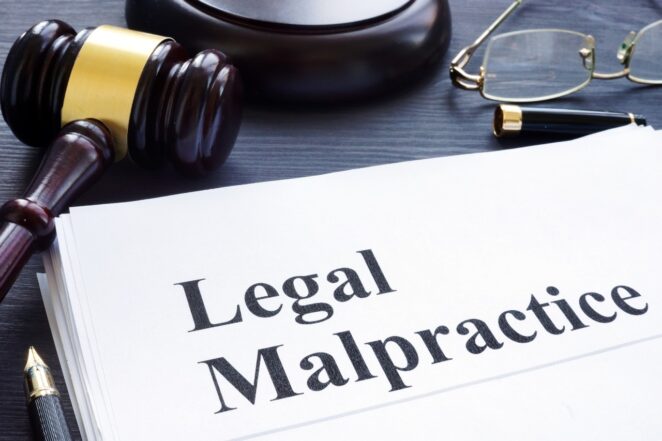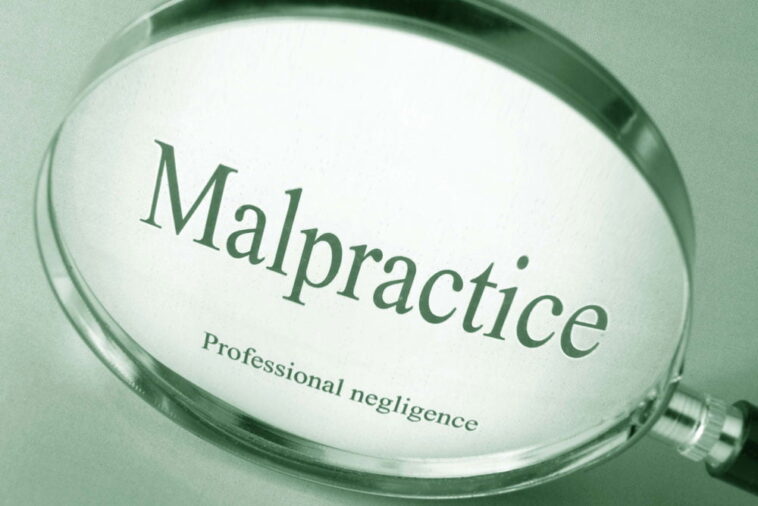Legal malpractice is something that all lawyers want to avoid. While legal malpractice doesn’t always happen, it can be hard to avoid it when you do not know what would be considered malpractice in the first place. What’s worse about it is that you can be sued for it, which is why avoiding it is of utmost importance.
According to the American Bar Association, private practice lawyers have a 4-17% annual likelihood of being sued for legal malpractice. If you don’t want to be in the position of getting sued, here are some tips that will help you avoid an unpleasant scenario.
1. Stay Away from Bad Clients
When you work as an attorney, you are bound to encounter some clients that grind your gears. But as with any job, you cannot always expect everyone you meet to be pleasant. You may accept any client as long as you get paid and as long as you know there is a chance of winning their case, but in reality, problem clients should be avoided.
Because some people have problems that make it hard to find effective legal solutions, they may be more likely to sue you for malpractice.
How do you recognize problem clients, though? There are some telltale signs that you shouldn’t work with someone, including:
- The client has filed many malpractice claims against attorneys in the past
- The client has tried to hire several attorneys, but according to them, all lawyers were ineffective. These clients may be the type to believe that all their legal issues come from poor counsel, and have a tendency to blame everyone else for anything bad that happens.
- The client has previously filed complaints with the bar association in your state. You can always reach out to the bar association in your area and ask if the client has made any complaints about other lawyers in the state.
2. Specify What the Hourly Billing Is Like

Always be very clear, detailed, and specific when it comes to your hourly bills. Many attorneys make the mistake of providing very vague time entry details, and this can backfire. People often sue their attorneys for misleading or vague time entries – therefore, be very specific when explaining yours. This way, the client will have no reason to sue you.
3. Write Everything Down
Any conversations or instructions should be collected in written form. Oral conversations are a great way to communicate, but you should not rely on them too much.
Before taking action, you should summarize every spoken detail in writing. Otherwise, you may misunderstand what the client wants or needs, which can quickly turn into an ugly malpractice lawsuit.
4. Always Put Your Client First
Keep in mind that your client’s needs are the most important part of the case. Put your client’s interests first, not your own. The real question is “What should I do?” instead of “What can I do?”
So, when you do not know what to do, always go for whatever would serve the client better. If you put the client’s interests ahead of your own, you can easily avoid being sued for malpractice.
5. Don’t Miss Deadlines

Working as an attorney can have you feeling overwhelmed on a regular basis. You have multiple clients with different issues, and you also have to meet numerous deadlines. With so much to do and so little time, it is not unusual to miss deadlines. Unfortunately, this is a common reason for malpractice lawsuits.
You can avoid missing deadlines by using a calendar system. You will keep track of everything, prioritize the right actions and tasks, and make sure you meet all deadlines more easily.
6. Only Take One Client Per Lawsuit
You may believe that taking more than one client per lawsuit will bring you more success and money. But when you accept this type of settlement, things can go downhill pretty quickly.
For example, one client may think you prioritized the other, which can lead to disputes. Depending on the outcome, one party may sue you for malpractice – this is why it is better to only focus on one client per case.
7. Don’t Promise the World
When a client comes to you, it’s clear that they want help. The client entrusts you with this case and hopes for the best outcome. You have the knowledge and skills necessary to advise people and help them get a favorable outcome, but the truth is that all cases can be unpredictable.
Even though you may be tempted to make promises to your client, don’t be overconfident. If you promise too much before the case even begins and then the case ends badly for your client, you may end up being sued.
8. Always Admit Your Mistakes

Lawyers are human, so they are bound to make mistakes just like anyone else. While you may feel ashamed for what you’ve done and may even fear the reaction you will get from your client, it is always better, to be honest about it. It’s ethical and it gives you a chance to apologize and avoid a possible legal malpractice claim.
9. Get a Good Malpractice Insurance
Having good malpractice insurance in place can help you a lot in case you get sued. However, insurance companies also have their own lawyers who can help you, give you advice, and tell you what to do and what not to do to avoid being sued for malpractice.
The Bottom Line
Malpractice can be avoided as long as you know the right steps to take. It’s not uncommon to deal with angry clients, but as an expert, you should know how to proceed to prevent being sued for legal malpractice.
But if you have been harmed by a professional, whether that is a healthcare or law expert, you can check out this website and get help from experienced and professional lawyers. Doing so will make sure you get some justice by obtaining compensation money from the responsible party.




